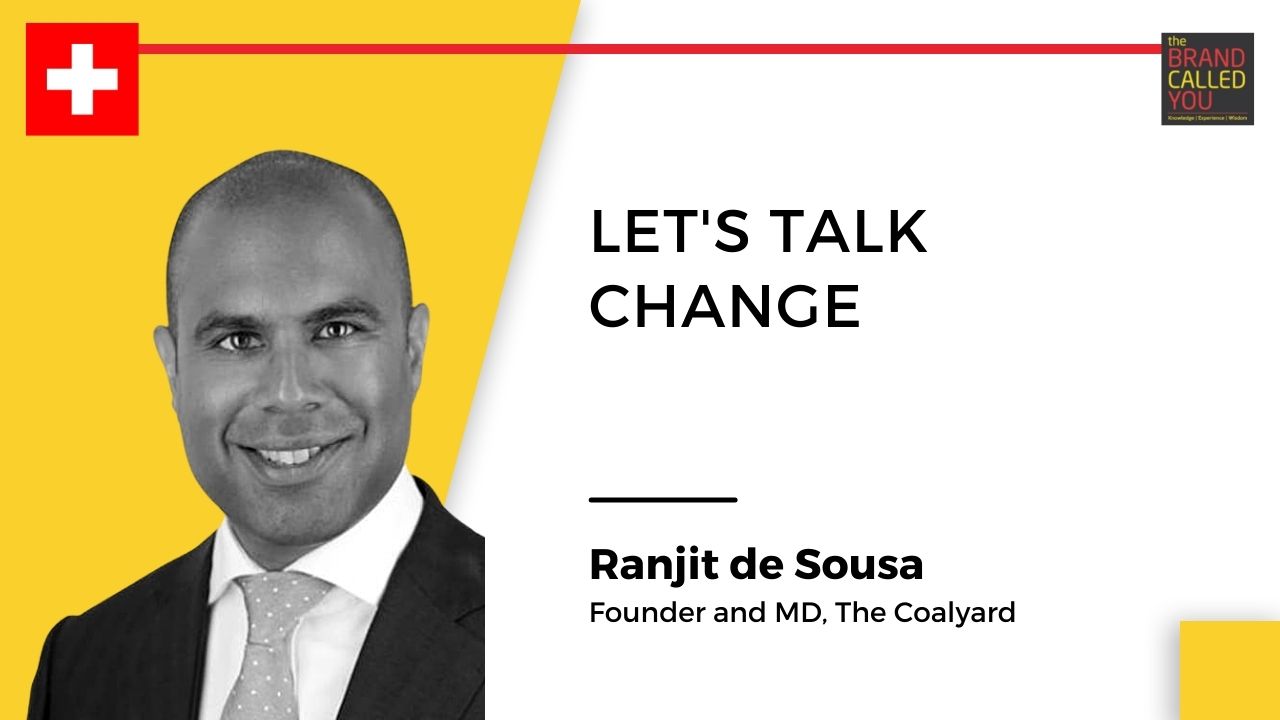Ranjit de Sousa, Founder, and MD, The Coalyard
Experienced Global Leader with a demonstrated history of growing businesses in the Professional Services industry.
Podcast
Overview
Change is eternal. There are people who avoid change and try to stick to the traditional ways of doing a particular thing. However, there are many change enthusiasts who understand change and support it. One of those is our guest for today, Mr. Ranjit de Sousa. He is the founder and Managing Director of The Coalyard. He is also the President of Lee Hecht Harrison.
About Coalyard
Speaking of the name ‘The Coalyard’ Ranjit tells us that he used the word ‘coalyard’ as a metaphor for change. He talks about how one and a half centuries ago at the time of the industrial revolution, coal was the centre of everything. With ‘The Coalyard’ he intends to depict how everything has changed and is still changing.
Talking about the work Coalyard does, Ranjit tells us that he is helping the companies that are at the forefront of changing work, typically the work tech companies. He helps them to scale up and perform better.
Challenges and learning in the journey of establishing Coalyard
Ranjit tells us that one of the major challenges and a drawback of being at a higher position in a relatively smaller company is that you get alone. You need to build a team which can advise you, give you creative inputs and open your eyes to different perspectives which is automatically done in larger organisations. He also talks about how things are changing and the pace of the change he is experiencing is a great learning of his life.
What Ranjit looks for in a startup before working with it
Ranjit largely works with the work tech companies. These companies are focused on improving workplace technology. It includes edtech, fintech, technologies for HR, virtual coaching and every dimension that makes the workplace look better.
Before working with a startup he judges the mindset of the founder. He checks if the founder has the love for his product or not and whether he is willing to focus on the customer or not.
Common mistakes made by startup entrepreneurs
On being asked about some mistakes that startup founders make, Ranjit replies by saying that these are the mistakes corporate people also do, but in a startup there is nobody to save you from those mistakes. Speaking of the mistakes he tells us that focus is something people generally don’t get right. Secondly, people don’t surround themselves with the people that can help them. The last thing he asks entrepreneurs to avoid is growing up too quickly. He says that growing too quickly might undermine the service to the customers.
Challenges faced by corporate employees
Ranjit says the time you start your career is very important. Secondly, he also talks about not being in a hurry while changing something. He says that try to change one thing at a time and avoid changing too many dimensions at the same time. Another thing he suggests is to pick your boss. He says you can learn a lot of things from your seniors so choose wisely etc.
Ranjit’s views on how HR has changed over the years
Ranjit believes that the function of HR has changed a lot over the past two decades. From being an administrative function to becoming a function of strategic thinking and managing talent, Human Resource has seen massive changes in its fundamentals. It has now become a more data driven function which is also integrating HR with technology. Data helps the HR department understand it’s employees better. It helps them judge the gaps that need to be filled etc.
Managing multiple cultures in an organization
Ranjit believes that having a ground experience of different cultures and understanding them is something very critical and crucial and there is no shortcut to that. He states that if you have to set up a business in a country you will have to understand the quality of business there, the customers and the environment in fine detail.
Pandemic and after effects
Ranjit says that due to the pandemic it seems we have shifted our paradigm from being required to work in an office to working from anywhere. Now it has become important for the Human Resource department to be more flexible and provide open working conditions to its employees. Second thing HRD is doing is supporting the employees in effective use of technology. However, due to working from home, the younger generation, or the people who have not worked in a formal organisational set up yet, are away from the traditional idea of working in an office under an organisational culture. To avoid this, Ranjit suggests that the seniors in the company should have frequent one on one conversations with their team to keep the team spirit up. He also suggests that teams can be called to office every once in a while to give the employees a taste of organizational culture etc.


